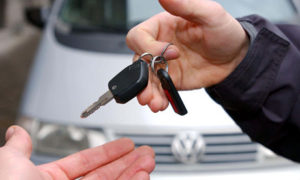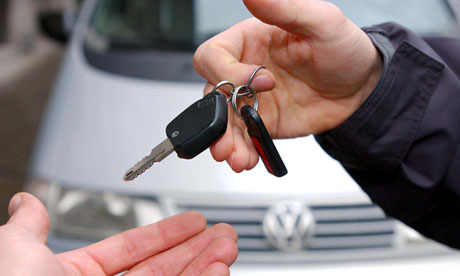 No one can predict the future. You may loan your car to a friend, roommate, or family member, only to get a call that an accident has happened in your car. It is important to really understand your coverages and how car insurance works if another driver crashes your car.
No one can predict the future. You may loan your car to a friend, roommate, or family member, only to get a call that an accident has happened in your car. It is important to really understand your coverages and how car insurance works if another driver crashes your car.
Though policies will vary, the general rule is that anyone living in your house is typically covered when driving your car, unless expressly excluded on the policy.
Permissive Use
For those friends or family members who don’t live with you but use your car once in a while, you can typically loan them your vehicle and not worry that they’ll be covered. Permissive use generally applies in these cases.
Permissive use means that if you give another driver permission to take your car, they will be covered by your car’s insurance coverage. However, you do not need to explicitly state your permission; the other person only needs to have a reasonable belief that they have your permission.
Your Insurance as Primary
So, if you loan out your car to driver who is not excluded on your policy, your car insurance is the primary coverage that would apply if a crash occurred. The driver’s insurance would act as secondary (or excess) insurance. This means that if you lend your car to a friend or a visiting relative, you could be liable if your friend causes an accident.
This is to be distinguished from the situation in which your friend drives your car but another person causes an accident and causes damage to your car; in this case the insurance of the person who caused the accident will be the primary insurance.
Excluded Drivers
Now, if you’ve excluded a driver from your auto insurance policy, e.g., because his driving record is poor and it could save you money to exclude him, your coverage will not pay for damages he incurs in the vehicle if he takes your car and gets into a crash.
- Remember, before you lend your car to a friend or anyone else:
- Check your policy or contact your insurer to get the specifics on the terms, conditions, and any restrictions.
- Make sure that your friend has a valid driver’s license. It’s also wise to double check whether or not your friend has auto insurance. (After all, you don’t want to be liable in case an accident occurs.)
- Verify that your registration and insurance information are in your glove box.
If you habitually lend your car to a non-resident relative or friend, or if your friend will be borrowing your car for an extended period of time (say a few weeks), consider adding him or her as an additional driver. Your insurer might consider the habitual borrower of your car to be a regular user of the vehicle, and if an accident occurs and your friend isn’t listed as an additional driver on your policy, your insurer could deny coverage on the claim.

